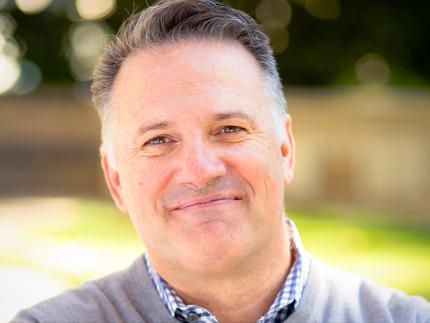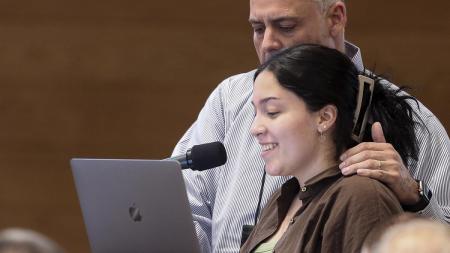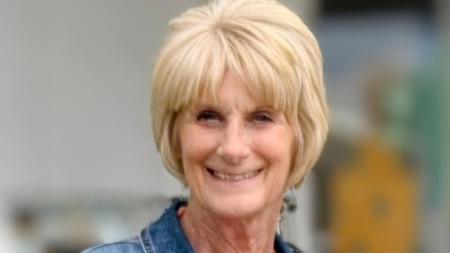Leading in a Time of Pandemic

During the COVID-19 pandemic, many pastors find themselves struggling as they try to lead their congregations into what is likely to be a new world of worship, prayer, and religious practices, said Tod Bolsinger, author of the innovative book on church leadership Canoeing the Mountains.
In that book Bolsinger drew from his extensive experience as a pastor and consultant to offer advice on how church leaders could lead their congregations in a time of change and declining church membership.
But these days, because of COVID-19, a shaky economy, and issues of racial equity, pastors face a range of even more difficult challenges that are undermining their confidence in a substantial way, said Bolsinger.
“They are asking, ‘How do we adapt to this completely unprecedented time?’ . . . This is a time when it becomes clear that we have to address difficult issues that have been there all along in our congregations,” said Bolsinger as a featured speaker on the monthly platform Church Now! Conversations.
“We are in a time when the problems churches face are not going to be solved by going back to ‘normal.’ There is no assurance that the old ways will endure.”
Offered on Zoom, Church Now! Conversations are sponsored by Vibrant Congregations; the Center for Church Renewal; Luminex; Pillar Church in Holland, Mich.; Resonate Global Mission; Healthy Church Discernment; Classis Holland of the Christian Reformed Church; and the Holland Classis of the Reformed Church in America.
So far, Church Now! Conversations participants have heard from Ed Stetzer, speaking on COVID-19 and issues of race; Kara Powell, who focused on anxiety, especially in today’s youth; and Richard Mouw, who spoke on civility in the church. Coming up at 11 a.m. on Nov. 12 will be author and justice advocate Lisa Sharon Harper.
About 100 people, mostly pastors, listened to Bolsinger. In his talk, presented on Thursday, Oct. 8, Bolsinger noted that being a pastor today requires a great deal of resilience — a quality that goes beyond simply learning the right range of leadership skills. This resilience, he said, is about who pastors are in their character, in their personality, and in their faith. And it gives them something solid that they can hold on to as storms rage.
“Resilience is about the capacity to maintain our core purpose and integrity in the face of dramatic changes or circumstances,” Bolsinger said. Pastors, he added, need to answer this question about their core purpose: “What do we find crucial when everything around us is disrupted?”
Having this core purpose is important because pastors will need to be clear with their congregations: There is no going back to the way it used to be. The COVID-19 pandemic has turned traditional norms on their head. This means pastors need to rally their churches to embrace a new vision.
“Does a pastor have the resilience,” continued Bolsinger, “the inner strength, to lead a church from familiar surroundings into an uncertain future? Can the pastor say, ‘In light of our changed world, we need to take up our cross and take it into the world?’”
These are the times, said Bolsinger, when a congregation is apt to fight back. Church members don’t want to leave their programs behind; they want to know specifically how they are going to get to a new place in a time of great uncertainty and confusion. They don’t really want to pick up their cross. They long for the familiar.
“When you ask people to live beyond themselves, the normal result is that they pull back. You are calling people to change, and normally, naturally, people resist that,” said Bolsinger.
In his new book, Tempered Resilience: How Leaders Are Formed in the Crucible of Change” (to be released Nov. 10), Bolsinger explains how leaders are formed to adapt to change by being forged in the fire of reflection, relationships, commitment, and experience. He describes a resilient leader as someone who is like a chisel that has been crafted and tempered into a useful tool.
“When we are plunged into the fire of conflict, we need to be shaped by God, the ultimate blacksmith,” said Bolsinger. “We are formed in the leading. We need to get into the shop and feel the heat [from the forge]. We also need to be vulnerable as leaders. . . . Resilience takes practice.”
In moving ahead as leaders in this time of upheaval, said Bolsinger, it is important to have solid relationships for support. As leaders, he said, “We need to realize we don’t have the perfect answers. We’re not experts. We need partners, mentors, and friends in this process.”
Ultimately, he added, a pastor needs to be as wise as possible in devising a way forward into a new world in which the emphasis is apt to be less on Sunday worship and more on smaller communities, less on formal programs and more on individual relationships, less on traditional practices and more on innovation and creativity.
But this can be hard. Facing change head-on, even when absolutely necessary, is never easy. People rebel; they want what is comfortable. Things can get messy.
“It is really hard to lead people into the future when the people all want to go back,” he said. “Going forward, though, the people need to feel well-held as they are traveling.”
Balancing the need to be a leader with the need for resiliency and taking care of your own needs so that you don’t get too depleted is not easy — and really there is only one way to do that, said Bolsinger.
He then recounted the story in Mark 1:9-11, in which Jesus is baptized in the Jordan and comes up out of the water to see “heaven being torn open, and the Spirit descending on him like a dove.” And at that moment a voice from heaven said: “You are my Son, whom I love; with you I am well pleased.”
“This was said of Jesus before he did anything for God [in his mission], before he went into the desert and was tempted, before he gave any sermons, before he healed anyone,” said Bolsinger.
Jesus was loved by God for who he was, not for what he did. Pastors seeking to lead their congregation through troubled, fractured times like these have to have a sense that their identity does not rest in their success as a leader.
“You need to know you are beloved,” said Bolsinger. “You need to have the sense of being grounded in something other than your desire to lead through change.”


